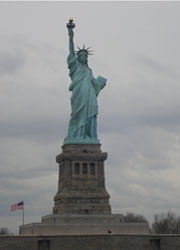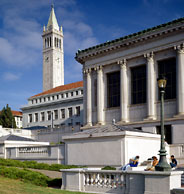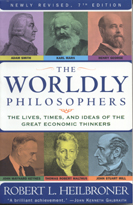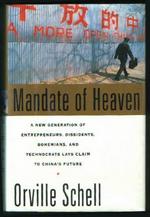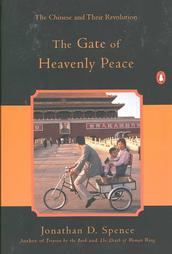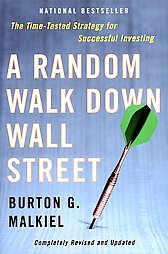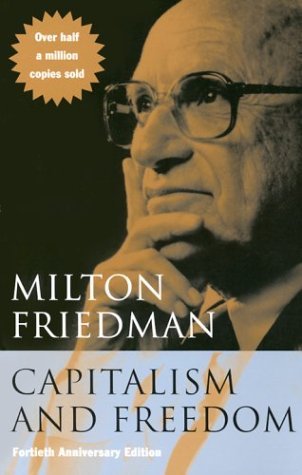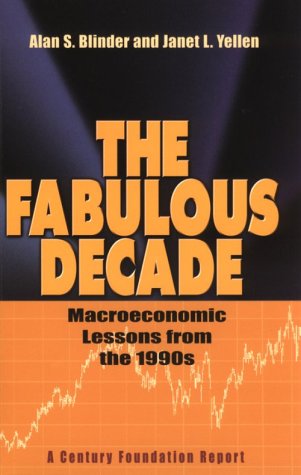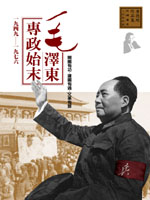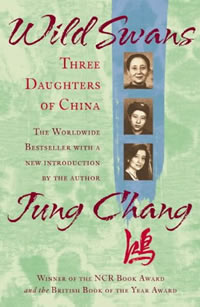Russia Near Deal to Join the W.T.O.
Officials in Washington and Moscow reached an agreement in principle for Russia to join the World Trade Organization, crossing the final big hurdle in the stop-and-go cycle that has marked the process since Moscow began its application shortly after the collapse of the Soviet Union.
The deal is expected to be signed next Saturday, when both President Bush and President Vladimir V. Putin of Russia will be in Hanoi for an Asia-Pacific Economic Cooperation meeting, negotiators from both countries said. The White House also announced this week that President Bush planned to stop in Moscow on Nov. 15 on his way to Vietnam.
“We have agreement in principle and are finalizing the details,” the United States trade representative, Susan Schwab, said in a statement. “It is a clear indication of Russia’s efforts to participate fully in and benefit from the rules-based global trading system.”
Mr. Putin has repeatedly said that joining the 149-member W.T.O. was a major foreign policy goal, though Russia’s oil-driven economy will get few direct gains from membership in the organization, which sets the ground rules for globalization. But joining would give Russia a voice in world trade talks, with the potential to help set future trade policy.
“Russia today is the only major world economy outside the W.T.O. — the only one,” Mr. Putin said at a news conference early in his presidency, in June 2002. “Staying outside this organization, outside this process is dangerous and stupid.”
American officials say the countries gradually worked out nagging disputes on issues like agriculture inspections, chicken exports to Russia and intellectual property protection.
The Bush administration has other contentious issues with Russia, particularly its support for Iran and that country’s nuclear program. There was no immediate sign of any broader deal involving those issues.
One American official said that Russian negotiators had been a “moving target” back in July, balking on issues that Washington thought had been resolved. But they said Russian officials had become more forthcoming in recent weeks.
“At the bitter end, the issues were quite trivial,” said Gary C. Hufbauer, a trade policy expert at the Institute for International Economics in Washington, who has followed the negotiations.
Mr. Hufbauer suggested that Russian leaders might have decided to seal a deal out of worry that this week’s elections would mean greater resistance by Democrats to an accord. “I think the Russians read the election returns and realized that if they don’t go for it now, they might not get anything,” he said.
Russia still must win approval from Moldova and Georgia, countries with deep grievances over a Russian ban on importing wine, ostensibly for health reasons. Those countries could further delay any final deal on W.T.O. membership, which is expected to take place next year. Russian officials have said they want to join in 2007.
Georgia first approved Russia’s membership but rescinded it last month, after Russia blockaded its border. Maksim Medvedkov, Russia’s chief negotiator, said Friday in remarks carried on state television that he would not negotiate with Moldova and Georgia separately but try to allay their objections during multilateral talks with the W.T.O. in Geneva.
The European Union, China and Japan have already signed off on Russian membership.
American officials said they reached agreement on longstanding disputes about American exports of poultry, beef and pork. Russia is the United States’ biggest export market for chicken parts, but American producers have long complained about being hindered by Russian inspection procedures.
The agreement also calls for Russia to offer greater access for foreign services, from construction to overnight parcel delivery and telecommunications. Russian officials also agreed to allow banks and investment firms in Russia to be owned by foreign companies, meaning that foreign banks would not need to team up with Russian partners.
American trade negotiators accepted an unusual restriction on foreign players in the banking and insurance sectors, according to the trade representative office. It will limit foreign investment to no greater than 50 percent of total investments in these businesses. In Moscow, state television reported Friday that Russia was the only country in the W.T.O. to win this concession.
Russia also promised to step up enforcement of intellectual property rights, which had been carried out in spotty fashion.
Russian trade relations with the United States, while forming only a tiny share of both countries’ total foreign trade, have gone through some dismal periods. In 2002, President Bush imposed tariffs on steel, a major Russian export commodity, and Mr. Putin retaliated by banning imports of chicken thighs, known as “Bush Legs” because the product first arrived in Russia as food aid under the president’s father in the early 1990s.
In contrast to China, Russia’s oil-dependent economy gains little from joining the W.T.O. “China is a consumer goods manufacturer and exporter and there was a huge benefit for China,” said Peter Westin, chief economist at the MDM Bank. “There will be nothing like that for Russia.”
Instead, Mr. Westin and other economists say, the primary benefit for Russia would come in exposing the domestic banking, telecommunications and other sectors to more direct foreign competition. This should increase productivity.
Ford Motor, which produces about 70,000 cars a year in Russia and exports another 50,000 cars to Russia, said it was delighted by the deal. Over the next seven years, Russian duties on foreign-made cars are set to decline to 15 percent, from 25 percent today.
“What all this adds up to,” said Stephen E. Biegun, Ford’s vice president for international governmental affairs, “is that we will be able to grow as fast as we possibly can in Russia.”
The Newly Appointed Airbus CEO Steps Aside
Christian Streiff, who was just appointed as CEO of Airbus this July, resigned on Oct. 9. Streiff clashed bitterly with EADS, the parent company of the embattled European planemaker, over how much freedom had had to overhaul the company, which is plagued by the repeated delay of the flagship A380 and by manufacturing disorders.
Streiff demanded considerable freedom to impose 2 billion euros ($2.5 billion) a year in cost cuts at Airbus, reported the New York Times.
But EADS has been determined to assert its control over Airbus since last June, when it was caught off guard by costly delays in the production of the A380 (read the rest or the news report).
Is Singapore Ruled by Law?
Singapore banned Far Eastern Economic Review today.
In August, FEER was sued by Singapore Prime Minister Lee Hsien Loong and his father Lee Kuan Yew for defamation, after the magazine published an interview of an opposition politician.
The ban, however, was not issued by the court, but by the government. And the reason was, quite “unreasonably”, that the magazine didn’t appoint a legal representative and pay a 200,000 Singapore dollar (US$126,000) bond, a new requirement imposed on foreign publications. The new rule was released by the authority in August, after FEER published its allegedly defamatory story. Click here to read story on the lawsuit from the International Herald Tribune.
From the Wall Street Journal:
Singapore Bans Business Publication
Singapore has banned the Far Eastern Economic Review, a magazine that published an article about an opposition politician in the city-state, after it didn’t comply with requirements that it appoint a legal representative and pay a 200,000 Singapore dollar (US$126,000) bond.
In August, Singapore imposed tighter restrictions on foreign publications, including FEER, Newsweek, Time, the Financial Times and the International Herald Tribune.
The ministry said FEER would be classified as an “offshore newspaper” and had to appoint a legal representative in Singapore and pay the bond by Sept. 11.
“It is a privilege and not a right for foreign newspapers to circulate in Singapore,” the Ministry of Information, Communications and the Arts said in a statement.
The ministry warned that it is now an offense to import the magazine or reproduce it for distribution (more).
